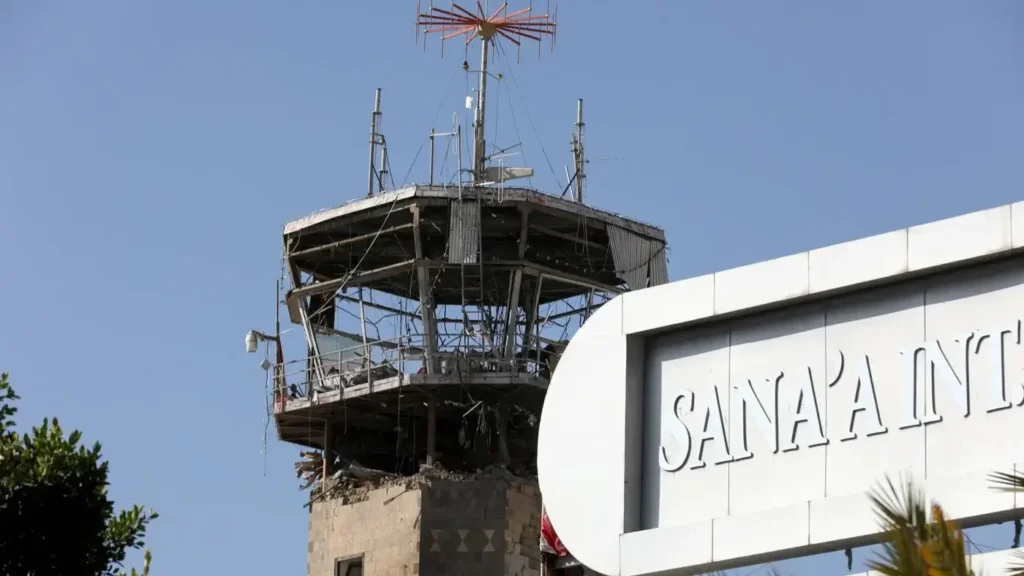Israeli forces carried out a Sanaa airport strike on Tuesday, claiming to have fully disabled Yemen’s main airport under Houthi control. The Israeli Defense Forces (IDF) said its airstrikes targeted flight runways, aircraft, and key infrastructure used by Houthi forces.
Local airport sources confirmed that the strikes hit civilian planes, the departure hall, the runway, and the military base. At least three people were killed in the attack, the Houthis reported, vowing to retaliate and maintain their pro-Gaza military stance.
This escalation followed Sunday’s Houthi missile launch, which landed near Israel’s Ben Gurion Airport, briefly shutting down air traffic. Israeli Prime Minister Benjamin Netanyahu declared Israel would strike the Houthis again if they continue attacks against Israeli targets.
On Monday, Israeli warplanes struck Yemen’s port city of Hudaydah, killing four people and injuring 35 others, Houthi officials reported. The IDF claimed the Sanaa airport strike aimed to stop the Houthis from transferring weapons and fighters through Yemeni airspace.
The Israeli military also confirmed it targeted power stations in Sanaa, including infrastructure crucial to the Houthis’s electricity supply network. Additionally, Israeli strikes hit the al-imran cement factory in northern Sanaa, adding to the Houthis’s growing list of damaged assets.
The Houthis accused both Israel and the United States of jointly carrying out the recent airstrikes, though US officials denied involvement. Following the Missile attack on Ben Gurion Airport, the Houthis announced plans to impose an aerial blockade on Israel by targeting multiple airports with missiles.
Regional analysts warn these escalations could push Yemen deeper into conflict while further destabilizing Israel’s already tense security landscape. Israel has conducted repeated airstrikes on Yemen since December, previously damaging Sanaa’s airport, power plants, and major shipping ports.









